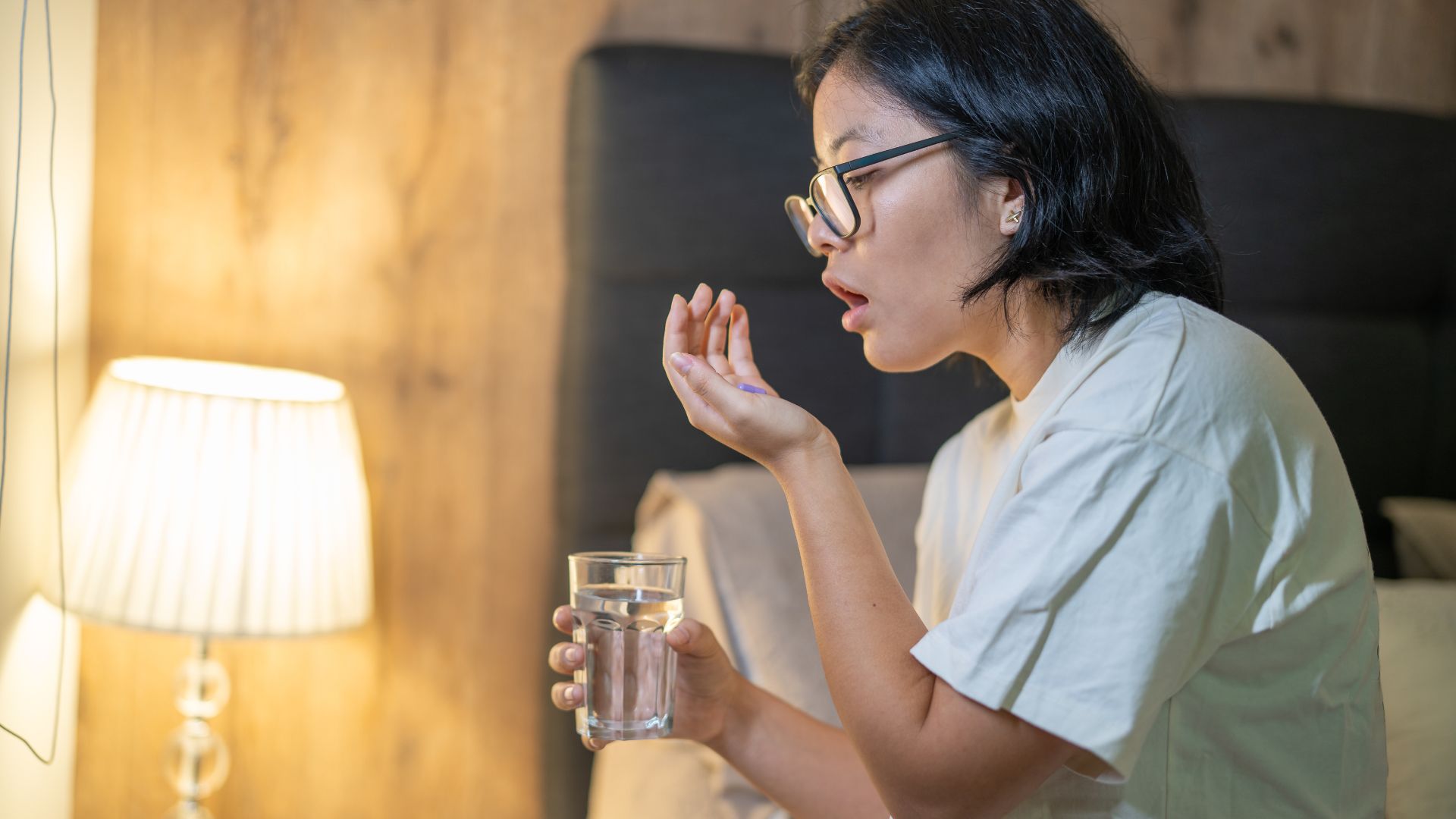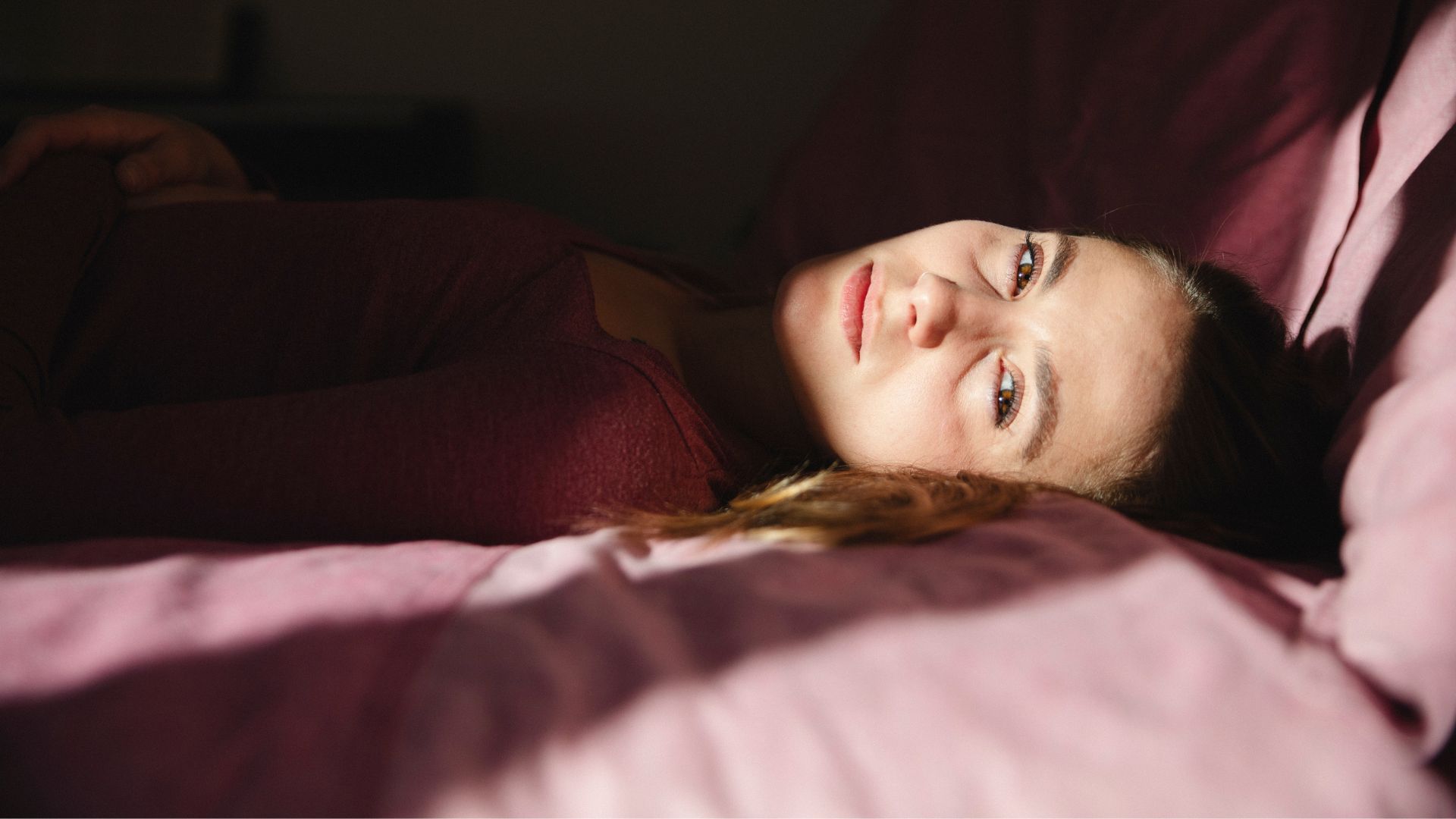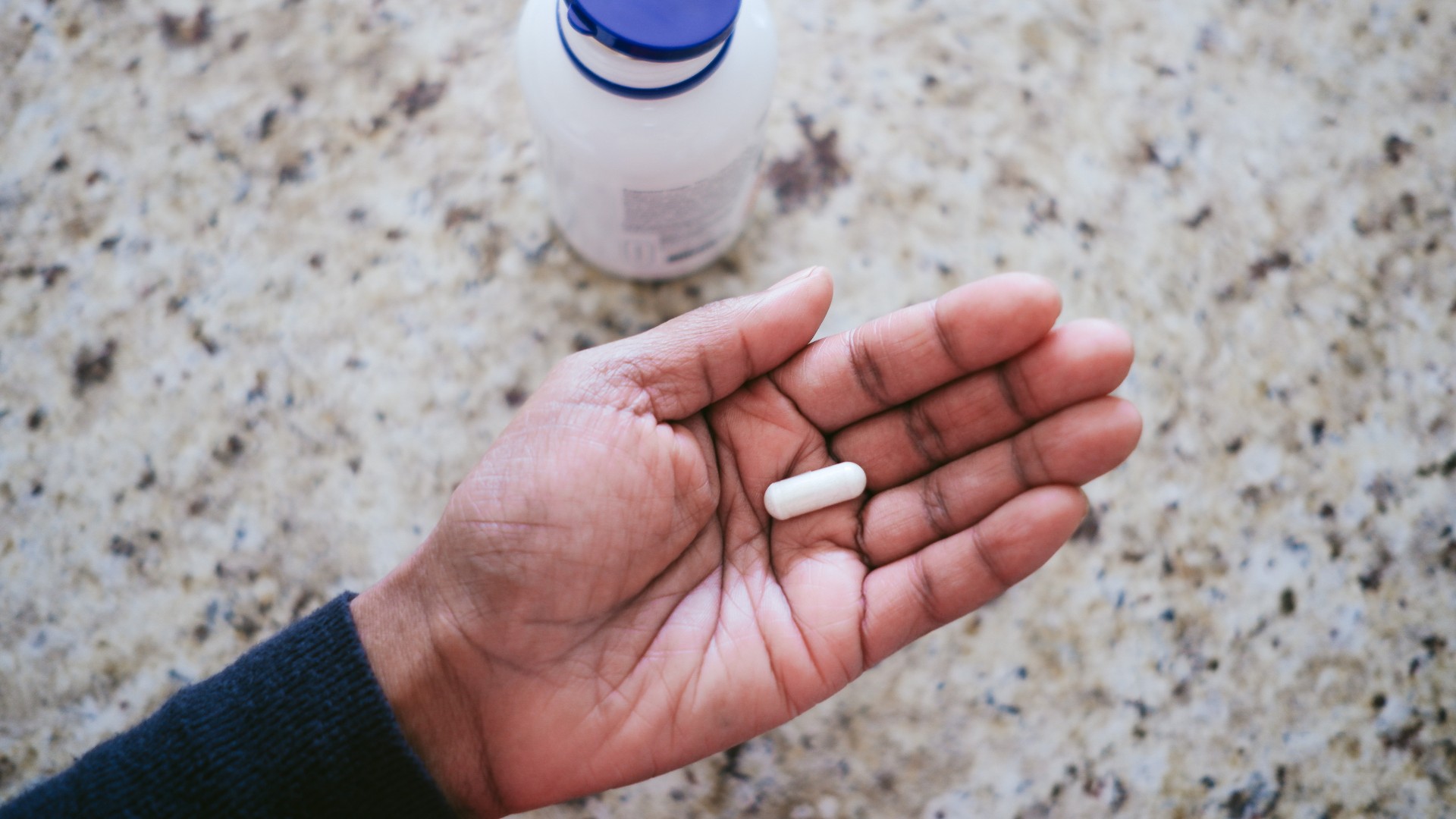Studies warn that 50% of adults are disrupting their sleep if they take this common supplement in the evening
Half of adults in the US may be experiencing nighttime awakenings by taking this supplement later in the day

From drinking coffee to staring at screens, there are certain habits that pretty much everyone knows you should avoid doing before bed if you want a good night's sleep.
However, there are some sleep-disruptors that aren't as widely known — and are even considered healthy — including one that may affect up to 50% of adults in the US.
No, it's not exercising, although a vigorous workout near bedtime can negatively impact sleep. We're talking about vitamin supplements.
A study found that taking a multivitamin was associated with poorer sleep maintenance, which means a greater likelihood of nighttime awakenings and difficulty getting back to sleep.
Plus, certain B vitamins that are commonly found in multivitamins are associated with insomnia, disrupting your internal body clock and even causing bizarre, emotional dreams.
What are multivitamins?

Multivitamins are supplements that contain a mixture of different vitamins and minerals. They typically come in tablets, capsules, liquids, and gummies, and are available to buy in pharmacies and stores.
While you can get the nutrients found in multivitamins from a healthy diet, which is the best way to consume them, a multivitamin supplement packs these nutrients into one capsule or gummy.
Get instant access to breaking news, the hottest reviews, great deals and helpful tips.
However, multivitamins should only be used to supplement a balanced diet and not replace it.
Supplements are ideal for people who may not get enough nutrients from their diets such as vegetarians and vegans, or those with diet-restricting medical condition.
How do multivitamins affect your sleep and why?
Let's start by making an important point: vitamins are important for sleep. In fact, vitamin deficiencies such as low levels of vitamin D are linked to poor sleep quality.
While the best way to get this vitamin is through a diet rich in food such as eggs, fatty fish like salmon and getting enough sunshine, over-the-counter multivitamin supplements can help increase your intake.
Multivitamins contain vitamin D, vitamin C (which research shows can help prevent some of the effects of sleep deprivation) and B vitamins — but that's where it gets complicated.

B vitamins are essential for producing sleep hormones. "B vitamins support nervous system relaxation,” psychologist and sleep expert Dr. Leah Kaylor recently told us.
“Stable energy and mood throughout the day lead to better sleep continuity at night."
B vitamins include vitamin B6 (important for brain health) and B12 (primarily found in animal-based products such as meat, fish and dairy).
B vitamins from protein like B-12 are involved in the production of melatonin (the sleep-inducing hormone), Alex Ruani, Chief Science Educator at The Health Sciences Academy, and Anna Mapson, Registered Nutritional Therapist from Goodness Me, recently told Mattress Online.

However, while these B vitamins are found in multivitamins and essential for overall sleep health, there's a good reason why you shouldn't take them before bed.
One study showed that high levels of Vitamin B12 are linked to insomnia. Elsewhere, research into of the relationship between sleep and B12, has suggested that it can increase your sensitivity to light and disrupt your circadian rhythm.
Another study found that B6 can have a significant impact on dreams, triggering emotional, bizarre and vivid dreams.
When is the best time to take multivitamins?

As B vitamins are still important for overall health (which in itself leads to better sleep), you shouldn't necessarily ditch your daily multivitamin altogether.
While it's worth taking into account the research about the impact of multivitamins on sleep, if you do want to continue, simply change the time you take it (and therefore your B vitamins).
The best time to take your multivitamin is in the morning with food to avoid disrupting your sleep. Recent studies also suggest that taking creatine in the morning can potentially help fatigue in the short-term.
What supplements can you take in the evening for better sleep?
These three supplements are best taken in the evening, and some can even aid sleep. Before adding any supplements to your diet, remember to consult your doctor, particularly if you have any pre-existing health conditions or concerns.
1. Magnesium

Getting enough magnesium is important for your sleep as it helps you to relax, regulates melatonin production and helps prevent sleep-disrupting hormones from interfering with your rest. Research has even shown this mineral may alleviate insomnia
Taking a magnesium supplement for better sleep is best done in the evening, between one and two hours before bedtime. .
2. Melatonin

In recent years, melatonin gummies have become one of the most popular ways to fall asleep fast and conquer sleep issues such as jet lag.
Melatonin is one of the hormones that helps us feel tired at night, with melatonin levels usually rising two hours before bed. According to the National Health Service (NHS), the best time to take melatonin is one to two hours before bedtime.
3. Calcium

Calcium aids the production of melatonin, contributing to a healthy circadian rhythm, so taking a calcium supplement before bed may help promote sleep. Calcium is best taken after a meal for better absorption, so it's ideal for taking with your evening meal.
Plus, caffeine can also reduce calcium absorption, so it's best take a calcium supplement in the evening if you can't do without your morning coffee.

Frances Daniels is a PPA-accredited journalist and Sleep Staff Writer at Tom's Guide with an MA in Magazine Journalism from Cardiff University. Her role includes covering mattress and sleep news and writing sleep product reviews and buyer's guides, including our Best Hybrid Mattress 2025 guide. She is interested in the relationship between sleep and health, interviewing an array of experts to create in-depth articles about topics such as nutrition, sleep disorders, sleep hygiene, and mattress care. She is also our specialist on mattress toppers — producing bed topper reviews and taking care of our Best Mattress Toppers 2025 guide — and leads content relating to fiberglass-free beds for a non-toxic sleep. Outside of Tom's Guide, she has written for Ideal Home and Marie Claire.
You must confirm your public display name before commenting
Please logout and then login again, you will then be prompted to enter your display name.
 Club Benefits
Club Benefits





